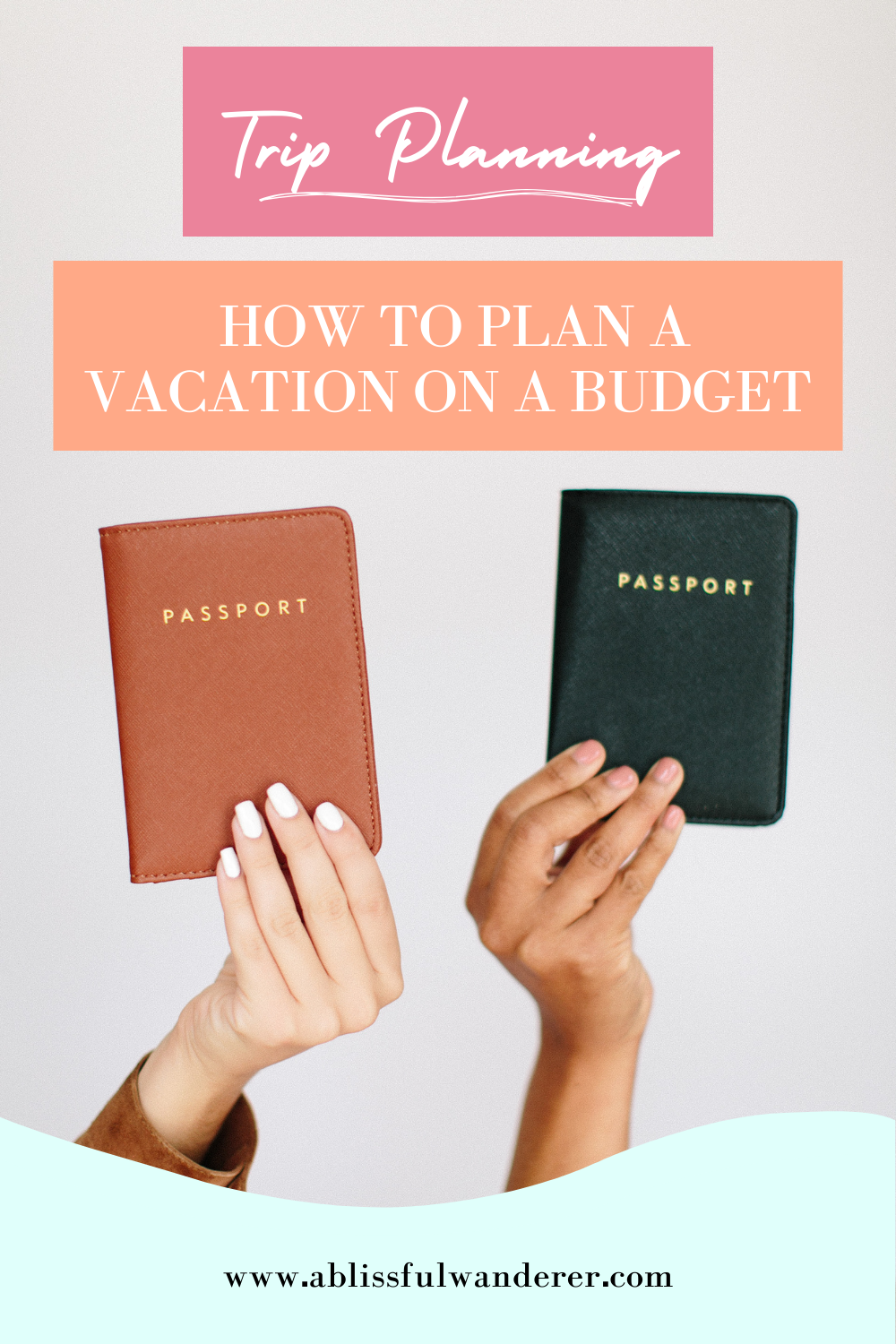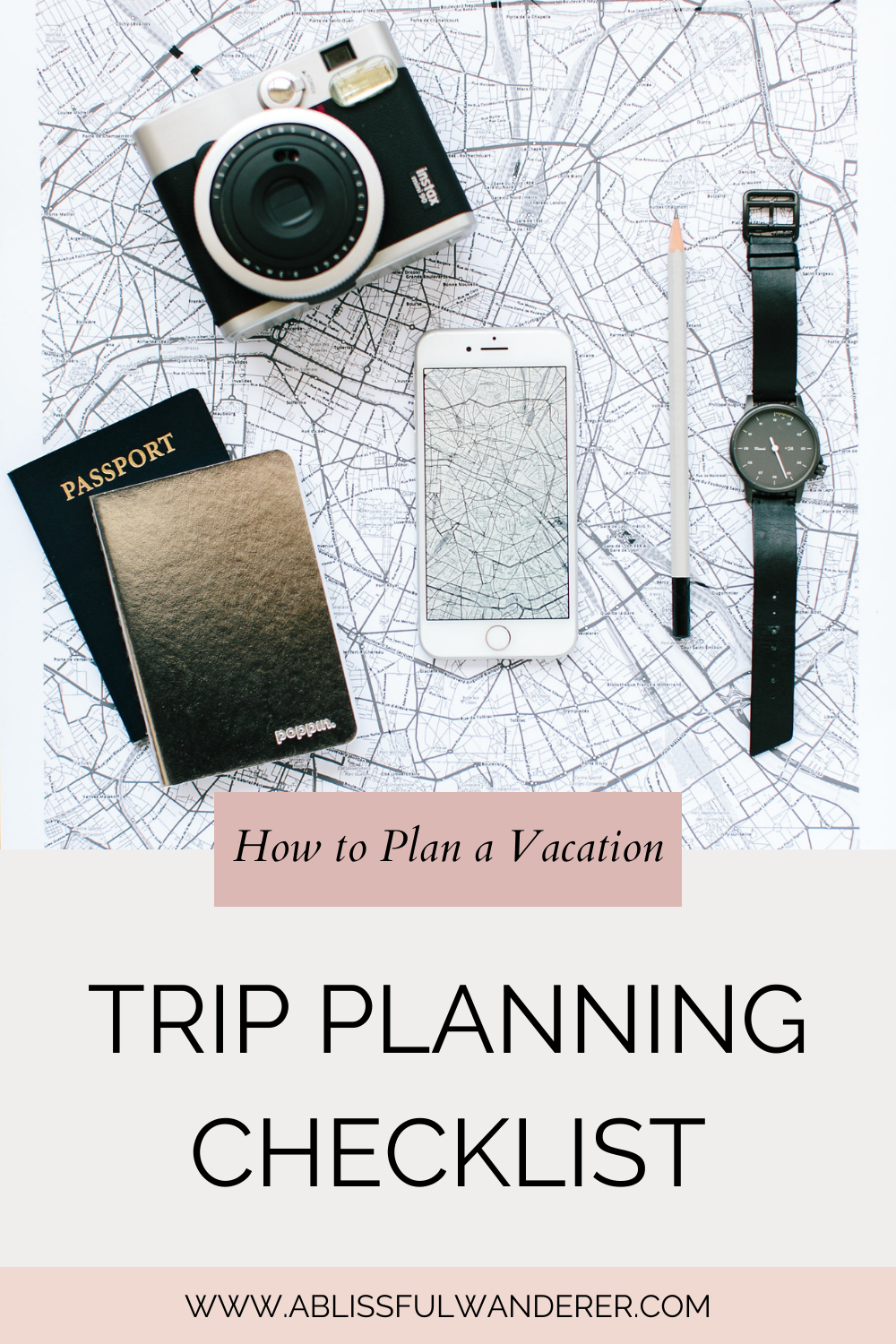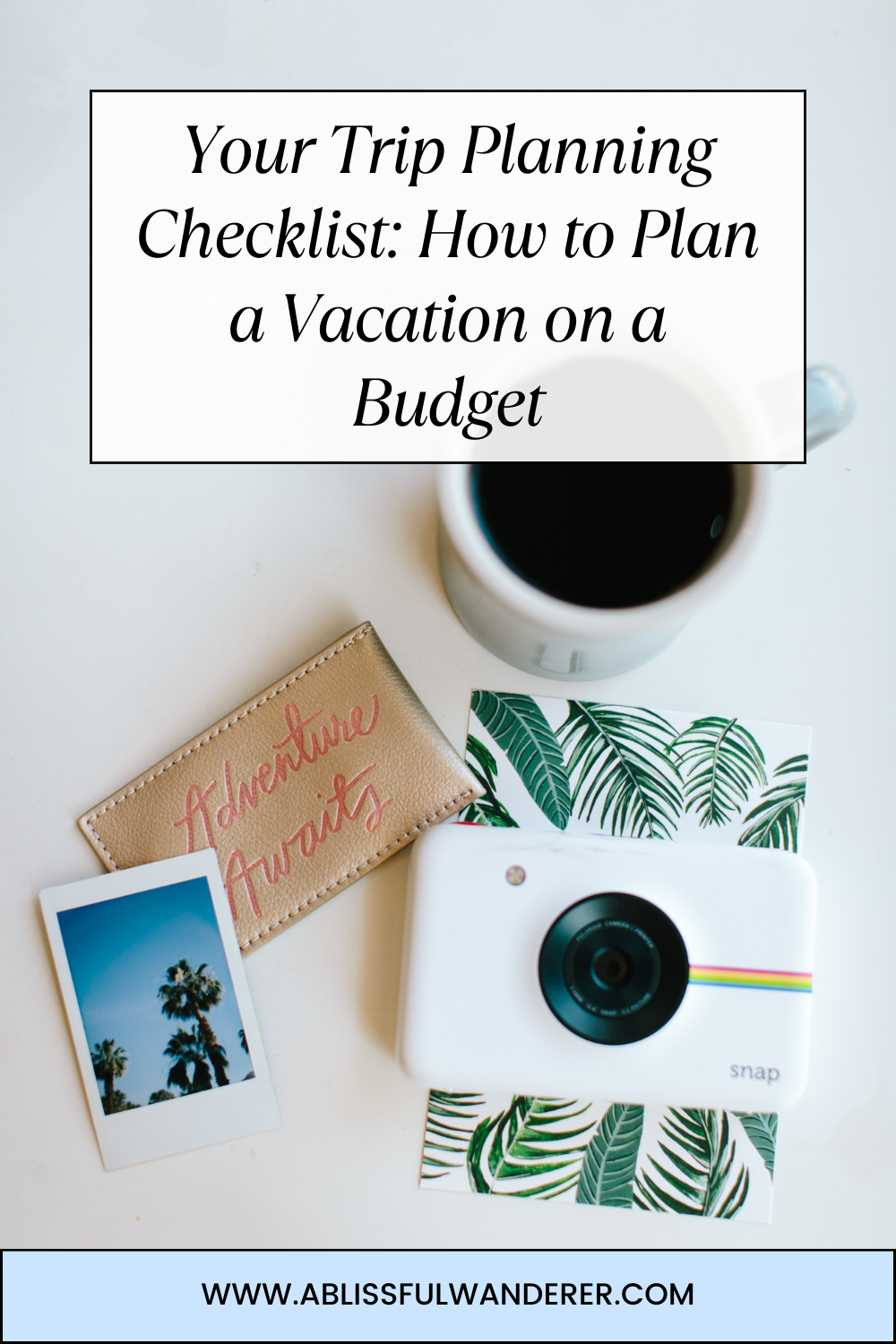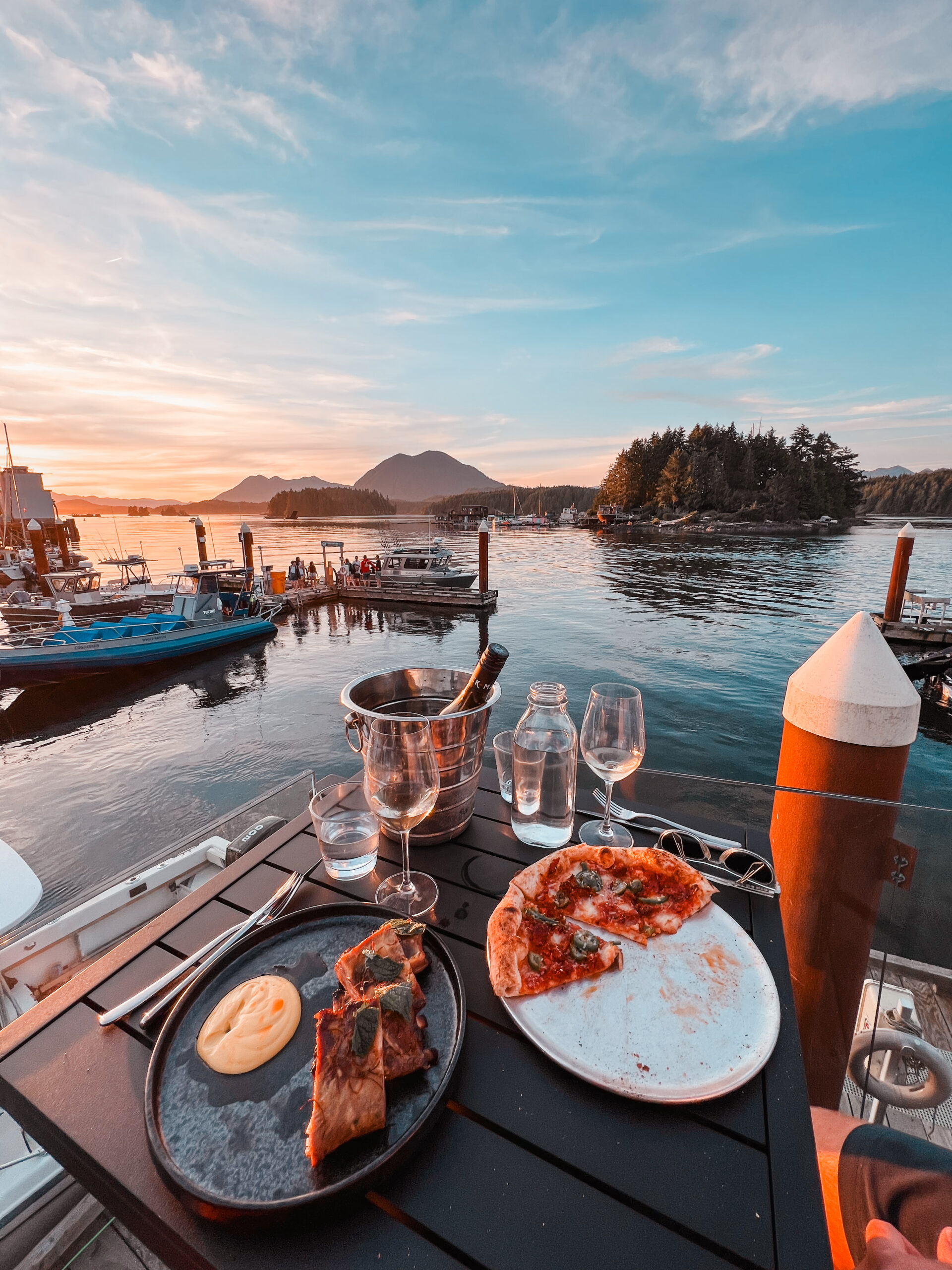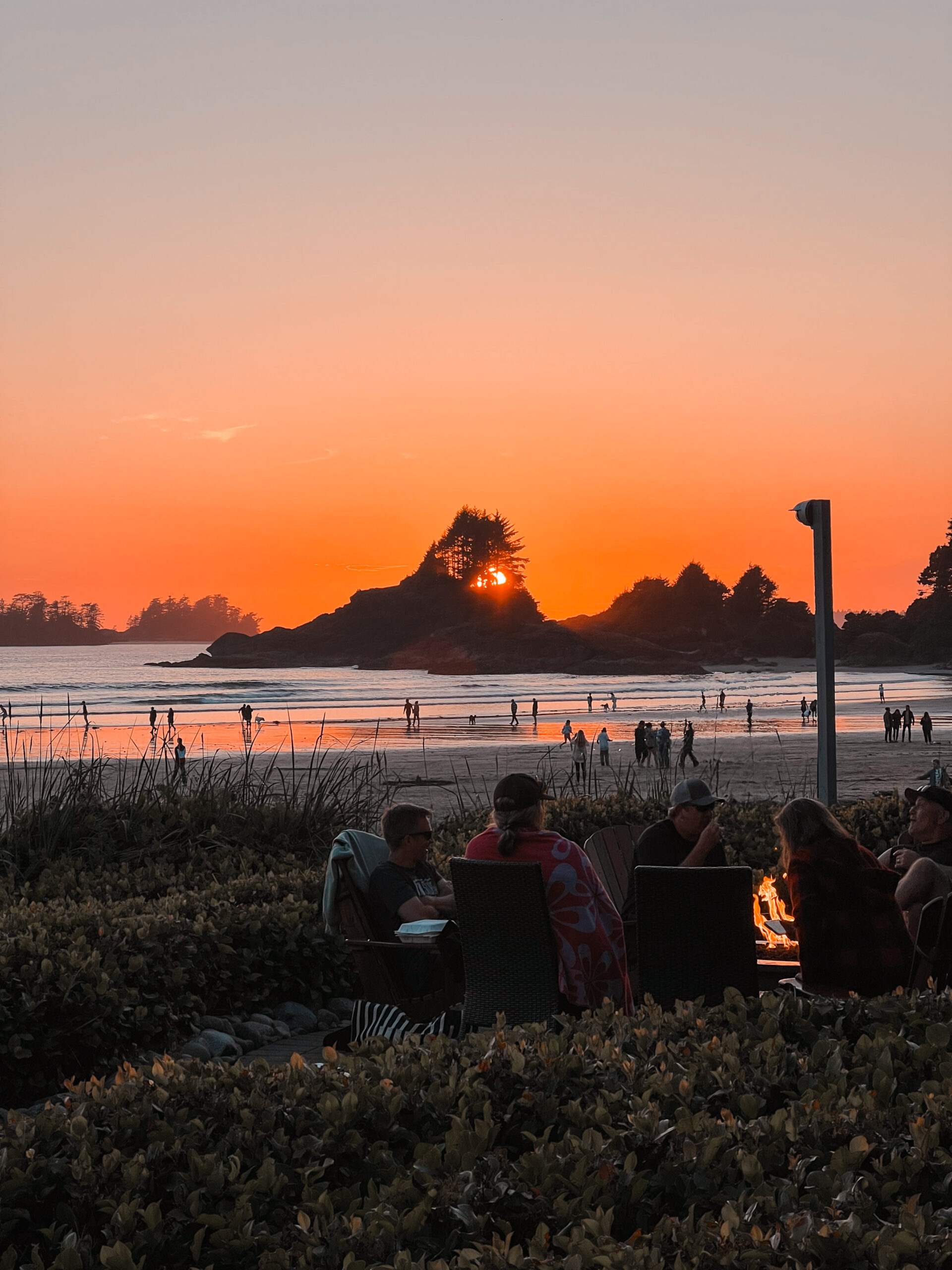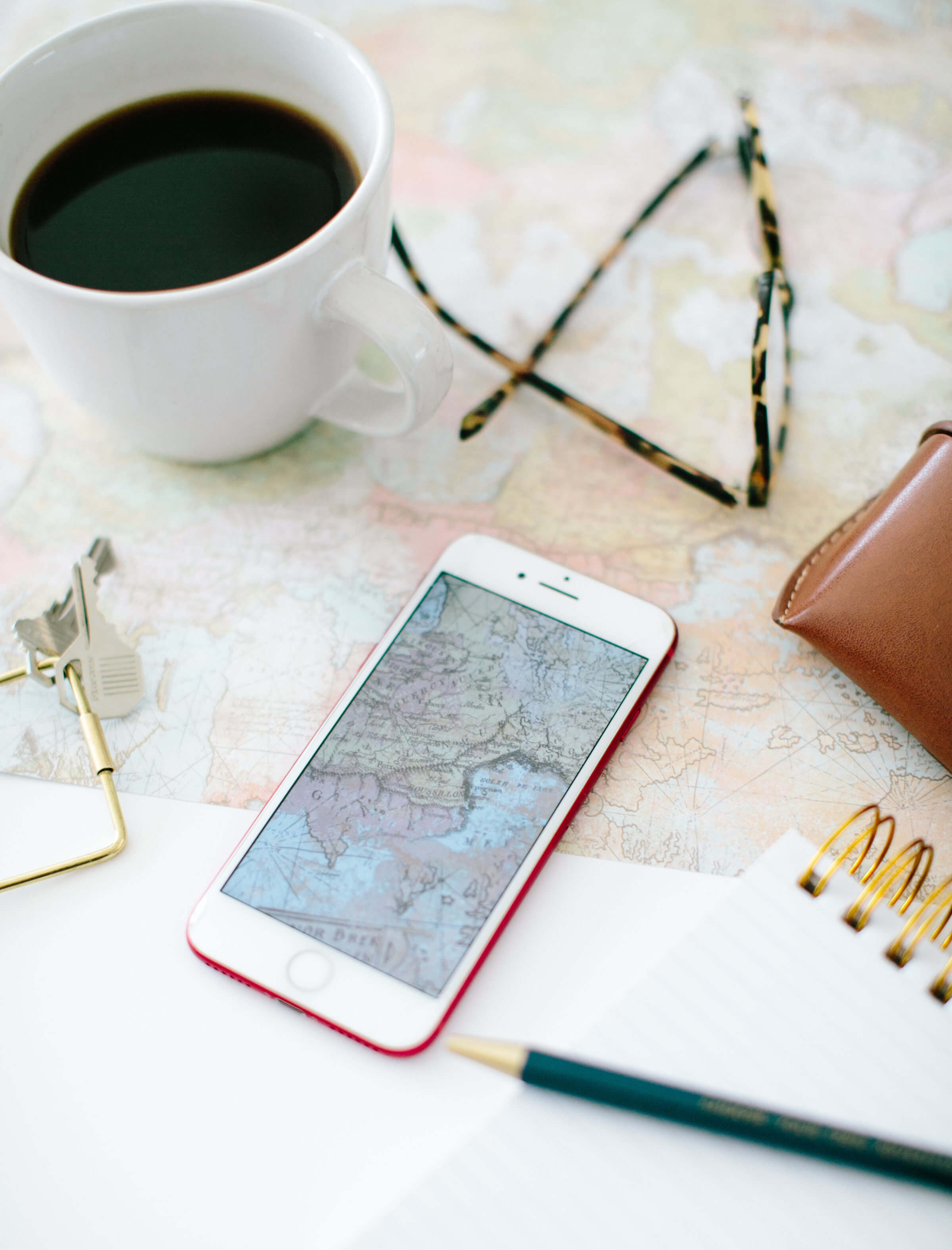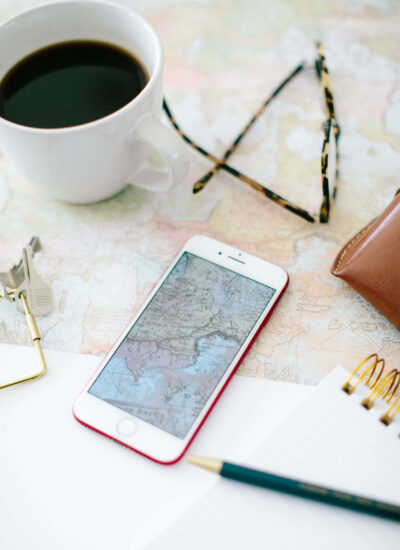Are you dreaming of the perfect vacation, but worried about breaking the bank? Don’t fret! We’ve got you covered. In this stress-free trip planning checklist, we’ll show you how to plan a vacation on a budget and create the ultimate getaway without sacrificing your savings account. From setting your vacation budget to finding affordable accommodations and packing tips, we’ve got all the essentials covered. Plus, we’ve broken down this checklist into a manageable timeline, to ensure you don’t get overwhelmed. So get ready to embark on an unforgettable adventure without the stress of overspending. Let’s dive in and learn how to make your dream vacation a reality!
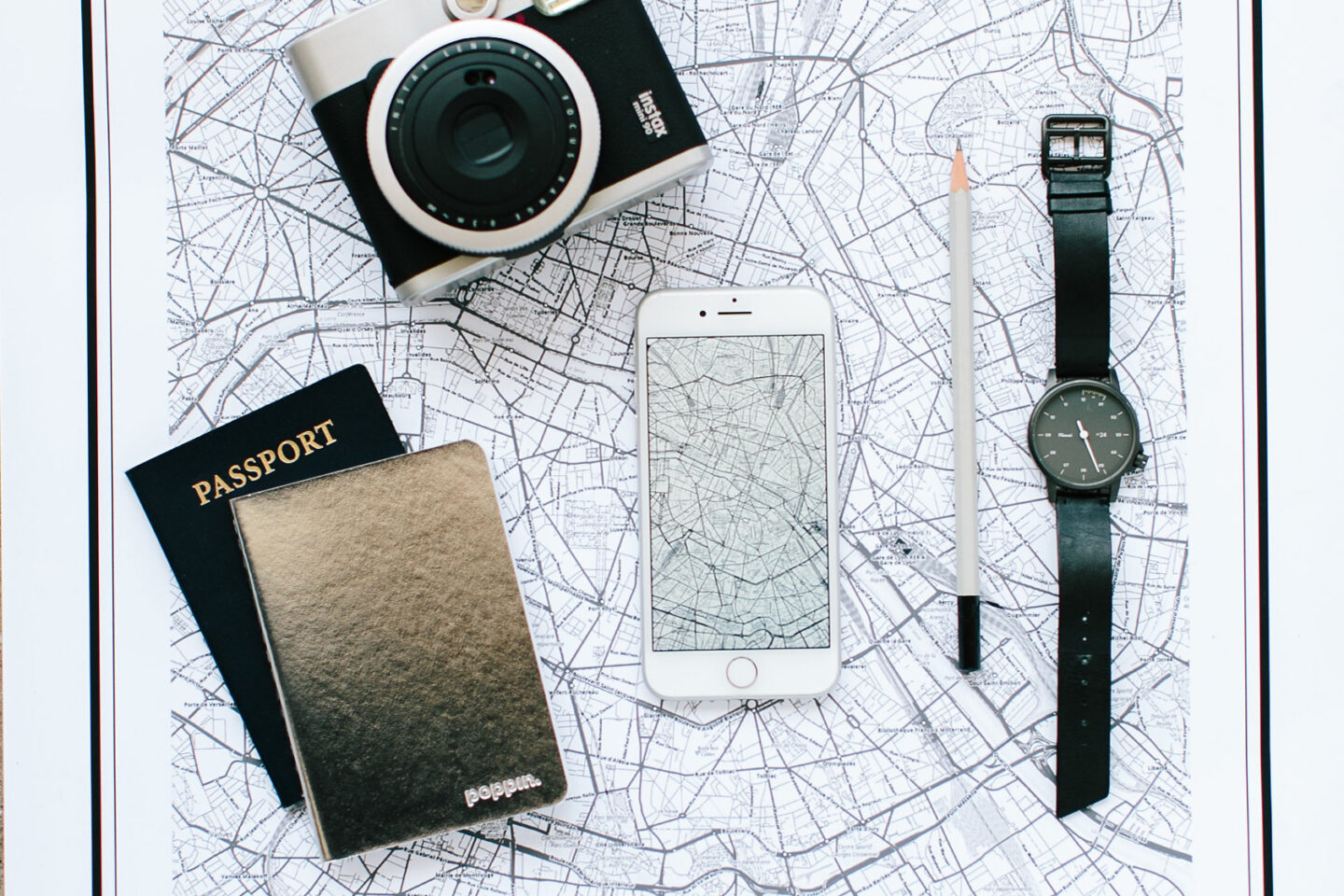
What You Need to Plan One Year to Six Months Before Your Vacation
1. Setting Your Vacation Budget
One of the first steps in planning a vacation on a budget is setting your vacation budget. By determining how much you are willing and able to spend on your trip, you can make informed decisions about where to go and how to allocate your funds. Here are some tips to help you set your vacation budget.
Review your financial situation
First, take a look at your overall financial situation. Consider your income, expenses, and any additional costs you may have in the near future. This will give you a realistic idea of how much you can afford to spend on your trip.
Plan out your vacation priorities
Next, decide what your priorities are for this vacation. Are you looking for a luxurious hotel stay or are you more interested in exploring new destinations and trying local cuisine? Understanding your travel preferences will help you determine where to allocate your budget.
Trip duration
Consider the duration of your trip. A week-long vacation will obviously cost more than a weekend getaway. Be realistic about how long you can afford to be away and factor in any lost income or additional expenses that may arise during your time off.
Transportation costs
Don’t forget to account for transportation costs. Whether you plan to drive, fly, or take public transportation, make sure to include the cost of getting to and from your destination in your budget. Research different transportation options to find the most affordable and convenient one for your trip.
Unexpected expenses
Lastly, leave room in your budget for unexpected expenses. No matter how well you plan, there may be unforeseen costs that arise during your vacation. By setting aside a small cushion in your budget, you can handle these unexpected expenses without derailing your entire trip.
By carefully setting your vacation budget, you can ensure that you have a stress-free and enjoyable getaway without breaking the bank. Once you have determined your budget, you can move on to the next section of this trip planning checklist to choose the right destination for your dream vacation.
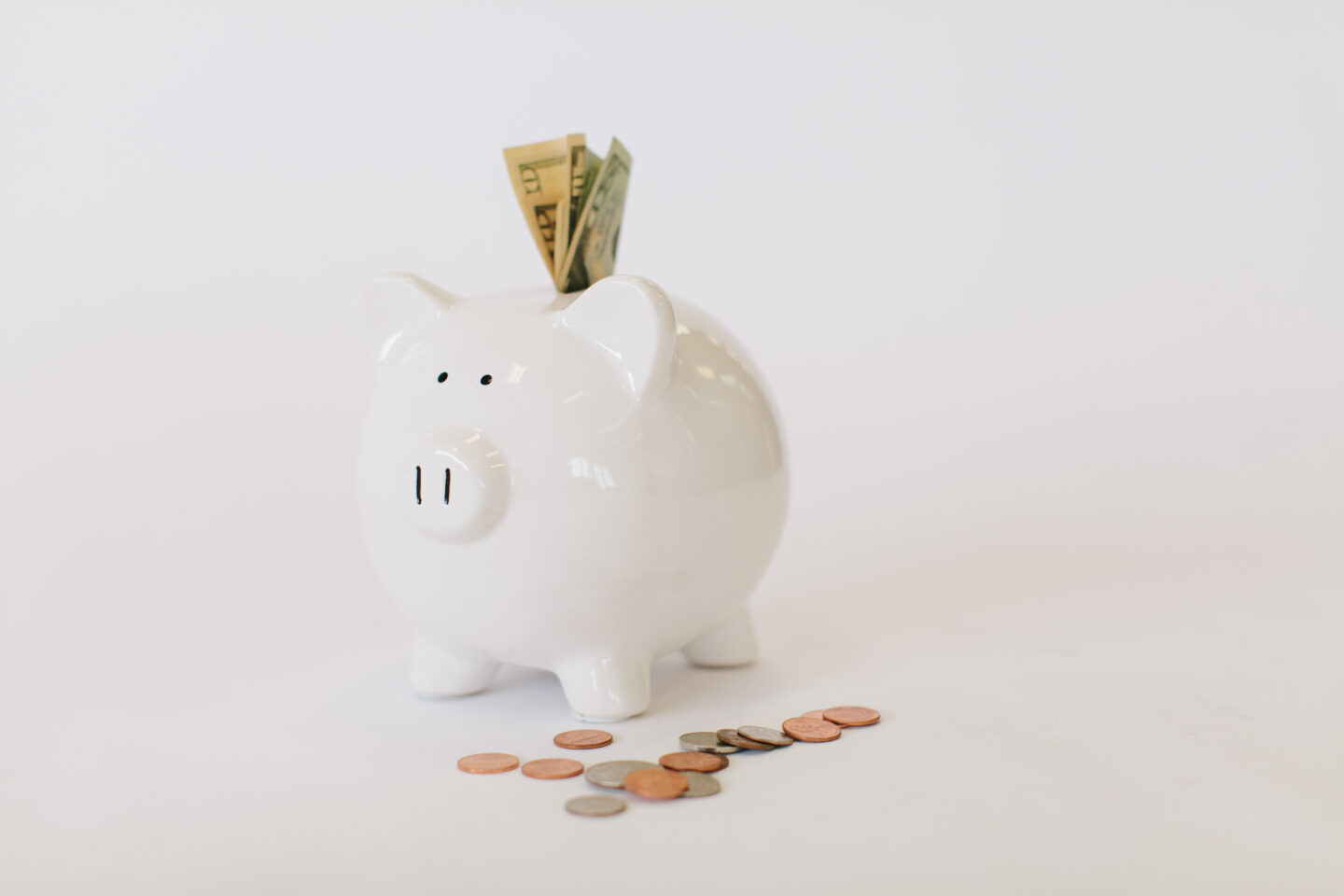
What You Need to Plan Six Months Before Your Vacation
When you plan a vacation, it’s important to remember that with your big ticket items, like the airfare and hotels, the earlier you book, the more you will save! While, there are sometimes last minute sales, these are few and far between, and you won’t necessarily get your first pick at dates. In the next section I share more about this is greater detail.
2. Book your flights and accommodation
Without a doubt, it’s always better to book your flights earlier versus later; accommodation, on the other hand, can wait till a couple of months ahead of your trip. However, if you plan a vacation at peak season or around a special event, it’s best to book early. You’ll have the most options to pick from, and this is one less thing to worry about. Plus a lot of accommodations have cancellation policies, so if you change your mind, or find something better, you can always cancel without penalty. Just make sure to save your cancellation deadline in your calendar.
Savings: Booking your flights or accommodation more than six-months ahead can save you up to $500, if not more.
Booking Engines I personally use to Book Flights and Accommodation
- Hotels.com – love their loyalty program which allows you to earn a free night after 10 nights booked through them. We have gain over a dozen free nights for future trips through Hotels.com.
- Booking.com – the booking engine most used in Europe. And it has the biggest variety of properties, 28 million worldwide to be more specific!
3. Passport Check & Visas
Passport Check
Don’t be the girl that shows up to the airport and your passport expires next month. With most countries, you need at least six months left on your passport before it expires, or won’t be allowed to even step onto the plane. Make sure to check this when you book your flight a couple of months ahead of your trip. This will you lots of time to renew your passport if need be. Whereas if you leave this to the last minute, there can be expensive charges to rush order a passport.
Savings: It only takes 2-minutes to check your passport expiry in advance and yet it could save you the $335 it costs to rush order a passport.
Travel Visa Applications
If this is your first time travelling overseas, it’s important to know that we aren’t talking about credit cards here. the Canadian Government defines travel visas as “an official document, usually stamped or glued inside a passport, giving permission from a foreign authority for you to enter a country.”
They range per country you visit, the passport you carry, and how long you want to be there. For example, in order to go to Australia for up to 3 months, as a Canadian, it costs me $20 that needs to be paid and registered before stepping onto the plane. In my experience, after I applied and paid online, it got approved 24 hours later, and was digitally linked to my passport. It’s important to know that they actually check this at the airport, and if you don’t have this organized in advance they can deny you entry onto the plane. So it’s VERY important to look into before you go. Some visas are very easy and quick to apply for, whereas others can take a long time.
If you are confused about your particular visa application, I recommend consulting with a travel agent, and they can either apply on your behalf or guide you in the right direction.
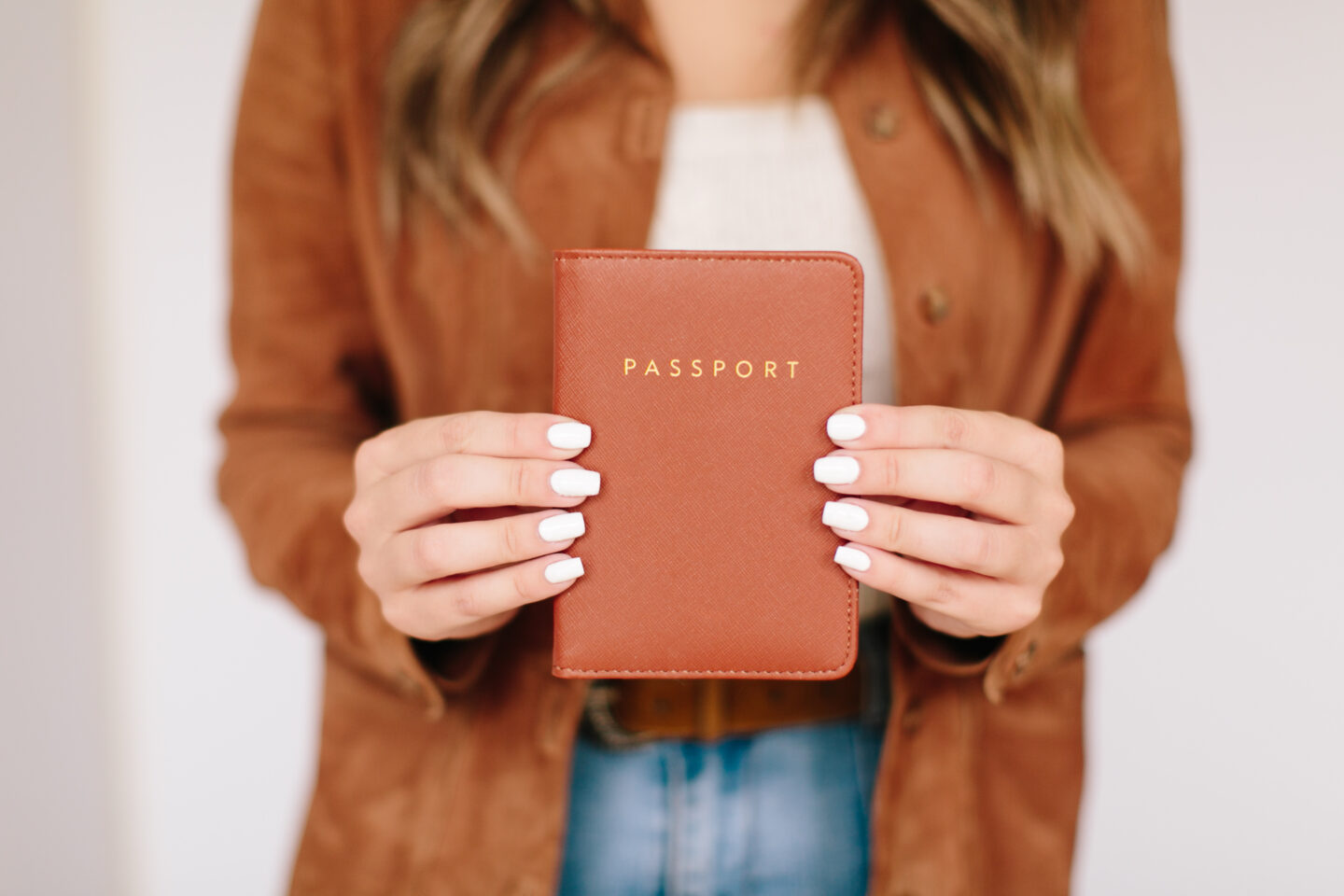
What You Need to Plan 2-3 Months Before Your Vacation
4. Medical
Do you need shots, medication, or special pills for your destination? Places like Asia, India and Africa normally require travel shots and malaria pills. When in doubt, I recommend seeing a travel doctor before you leave, or check your countries government website, as they normally have travel advisories. Here is the Canadian travel vaccination website for reference.
I also recommend reading my guide on how to avoid getting sick on vacation.
5. Money & Currency Conversion
Pick up cash in the currency of the country you are travelling to. Tip: Shop around for the best exchange rates. I have found exchange stores are better than the bank.
Alternatively, months before your vacation apply for a multiple currency prepaid Visa card. These cards allow you to load them like a debit card, and it will exchange them into multiple currencies at the lowest rate, and without an additional fee. As Canadians, we used this one in Europe, USA, and the UK, and loved it!
Also, on the topic of credit cards, don’t forget to call your other credit cards to advise them you are leaving the country. You wouldn’t want them to freeze your cards while you are on vacation. Some banks also allow you to do this online.
6. Do Your Research
Read blogs or guide books before your trip and make any necessary reservations for restaurants and or tours, and book your on ground transportation (ie. buses, trains, rental cars).
*Tip: Ask your friends and family! Think of anyone who has visited the place you are going to, and ask for tips. Fellow travellers normally offer the best and most honest advice. My boyfriend always puts out a mass ask on IG stories telling people where we are going and asking for tips. You’d be shocked by how many people respond with great suggestions.
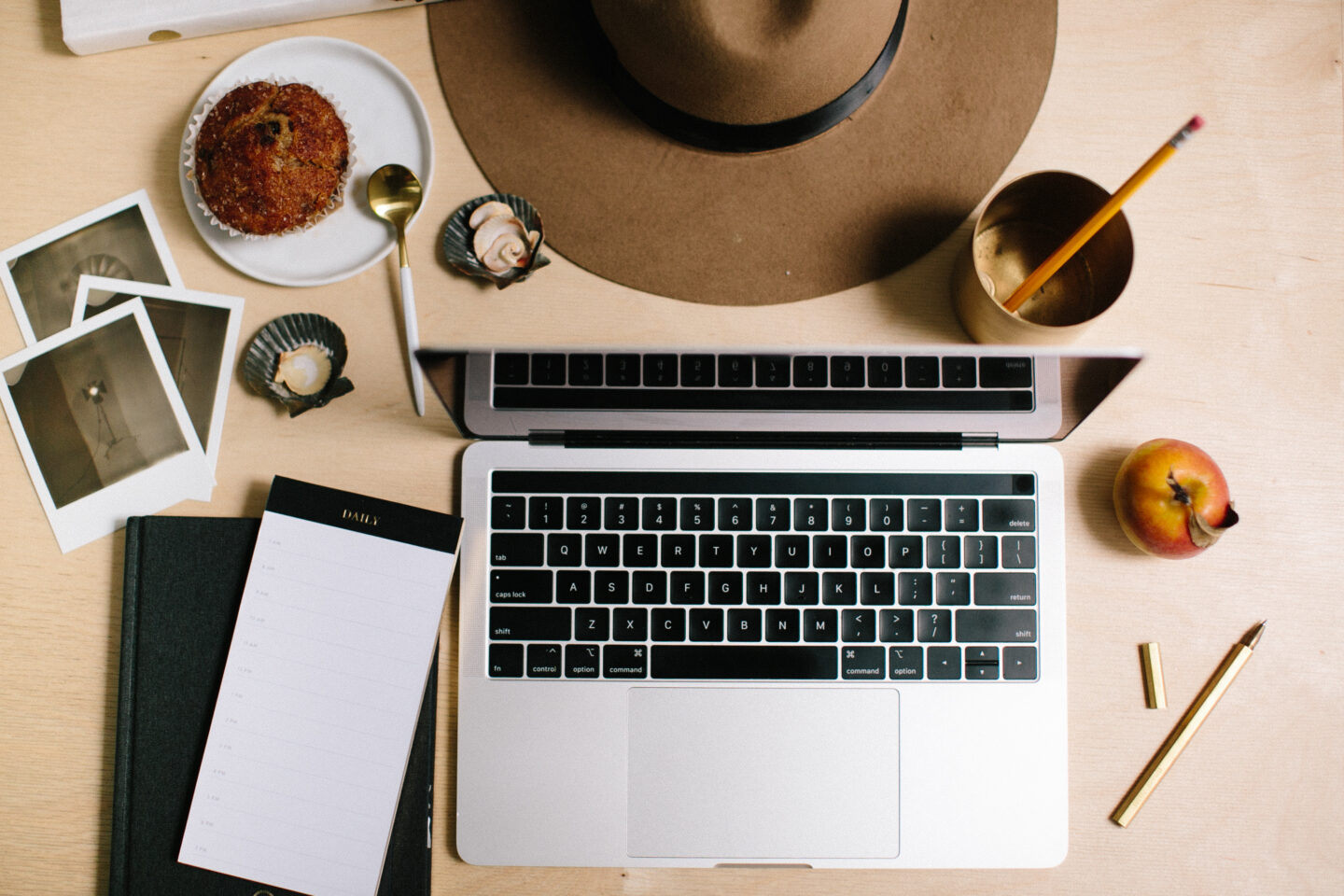
What You Need to Plan & Do a Week Before Your Vacation
7. Documentation
Photocopy 2 copies your documents or take a photo of it and save it on your phone (ie. passport, credit cards, travel insurance/ care card, driver’s license, international driver’s license, etc). If you photocopy them, I always recommend keeping one in your bag separate from the actual documents and give the other set to your travel buddy, heaven forbid anything happens to your real documents. If you take photos of them on your smartphone, make sure to email a copy to yourself and your travel partner or family back home.
8. Travel Insurance
Buy travel insurance or do you have travel insurance on your credit card? You never know what could happen, so it’s better to be safe than sorry. Most of our travel credit cards have extensive travel insurance, but if you don’t have a credit card with insurance you can purchase it through a travel agent or at an insurance broker.
I recommend and use either travel insurance included on my travel visa credit card or we use Safety Wing for longer trips.
9. Pack
I like packing at least a few days before leaving incase I realize I am missing something vital for my trip. This gives me tons of time to pick up anything I need at the store before taking off on my travels.
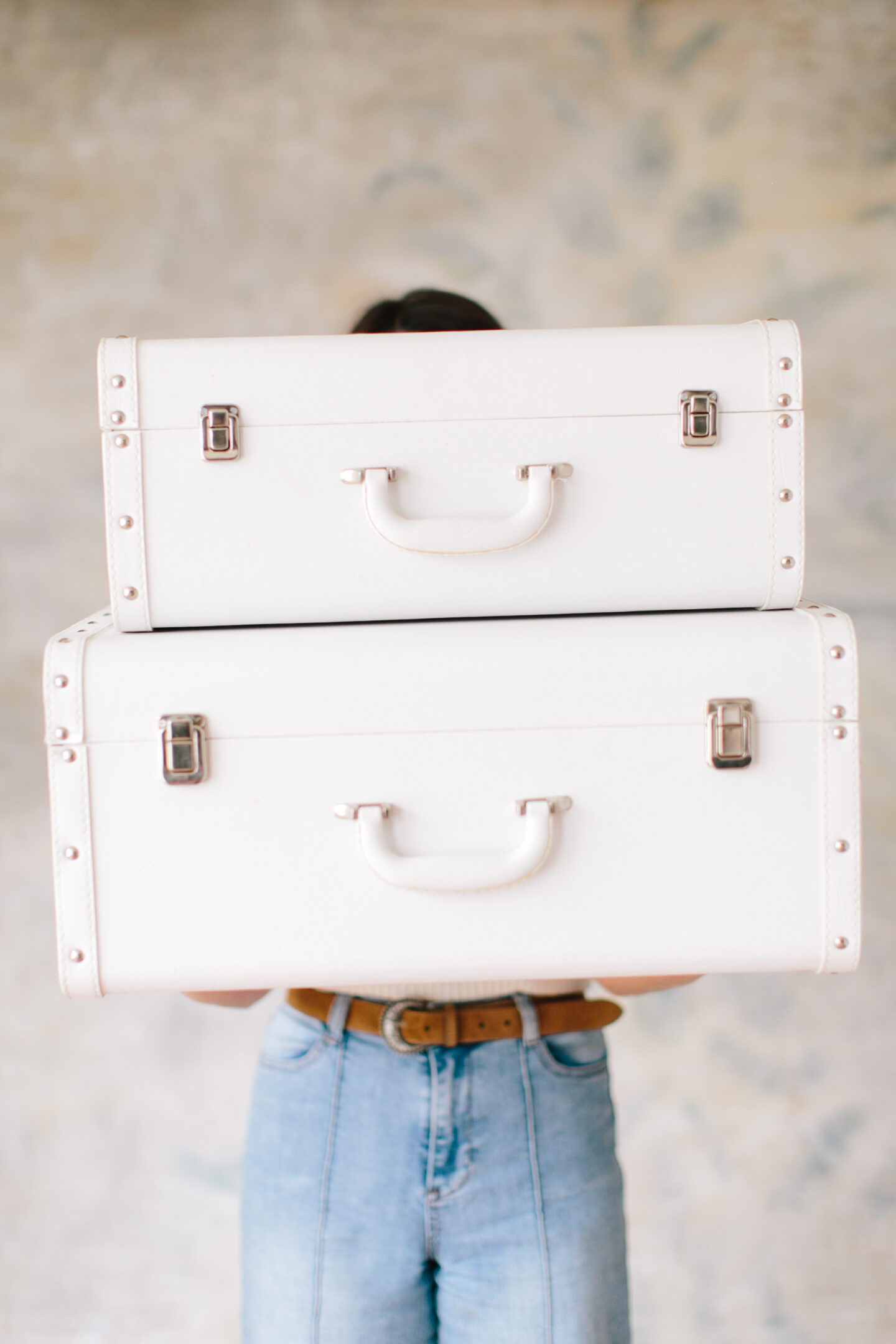
10. Phone Data
Purchase a phone data package from your home provider or buy a local data cards in the destination to stay connected. Word of advice, one thing that always takes the stress out of travel for me is having data on my phone when we travel. Whether it is for Google Maps, to look up travel guides, or just to get in contact with people, data makes life easier. Plus, it doesn’t hurt, that you can post that amazing travel pic on Insta, while you are on the go.
Travel tip: In the last two years, I have bought local sim cards once we arrive at the destination, as they’re normally the cheapest. Unfortunately, Canada has some of the most expensive phone plans in the world, so if you are ok to have a different number while you are travelling, buying local sim cards are a great option. You can even bring your home SIM card with you and pop it in your phone if you need to check texts. Also, we normally buy just data packages. Most of the time they will come for a local number, but we find data is the best since we can still make FaceTime or Skype calls and iMessages.
11. Power
Depending on where you are travelling the plugs and electrical currency might be different than your home country. To save you some stress, buy a converter plug ahead of time. I also suggest a plug with multiple USB sockets and a portable charger for when you are on the go! I use this one, and I love it because it can charge two phones at once, and it also can charge my camera too.
Funny enough, on our recent trip to Italy I couldn’t find our electrical converter plug the day we were leaving and I was forced to buy one in a German airport. I was shocked to see they were asking €69 for the same converter, when I paid $20 Canadian!! In the end I found a super basic one for €19 without the USB plugs, but I regretted taking my own advice and buying this affordable and awesome amazon converter. So save your pennies and buy this in advance! It’s good for any country worldwide.
What You Should Do the Day Before you Travel
12. Check into your flight
If it is a long flight and you want a good sleep, I definitely recommend checking in as soon as it is available. Most airlines it is 24 hours, but some have extended it to be 3-4 days in advance. Best to check, and set an alarm to remind you. You don’t want to be stuck in the middle seat for 9 hours. I’ve done it, and it isn’t fun!
13. Download your travel apps to use offline
Apps like Google Maps, Google Translator and XE (currency exchange) can all be used offline if you download what you need before you go. This is a great hack to save your limited data or if you won’t have data at all.
- Google Maps: pre-download the country or city you are visiting.
- Google Translator: download all the languages you will need. This feature has saved us so many times in grocery stores or with restaurant menus. We’ve also been able to have full conversations with locals thanks to this handy app.
- XE app: If you are a shopper, this app is super helpful for you to quickly convert a price into your local currency.
- Also, download any music, podcasts, and audiobooks or buy a real book to make your trip more enjoyable.
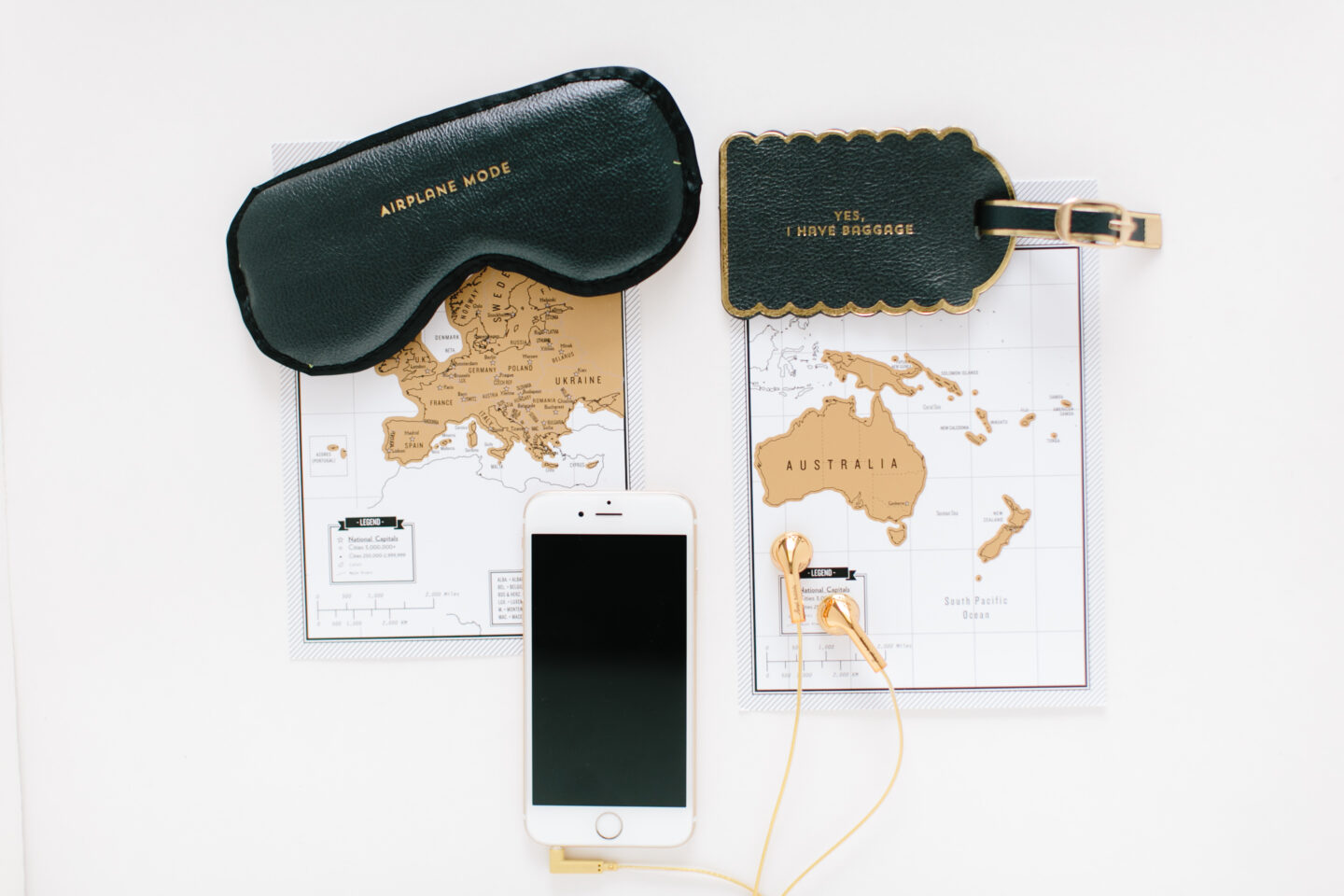
What to Do on the Day of Departure
The day as finally arrived to leave on your well planned vacation! Today is the last step in your travel planning check list.
14. Pack you Carry-on
Check you have packed your passport one last time. This is the one thing you need; if you forget anything else you can always buy it there. Also, pack your carry-on bag and those last-minute items like toiletries, PJs, and make-up.
That’s it! Is there anything you always do before a trip? Let me know in the comments below. And if this article was helpful, make sure to share it with someone who could use it. Safe and happy travels!
Read Next: More Resources on How to Plan a Vacation
The Best Travel Packing Tips to Ease Anxiety
Travel Planning Resources & Travel Gear
Booking a Trip Online vs. with a Travel Agent
Pin it: How to Plan a Vacation on a Budget
